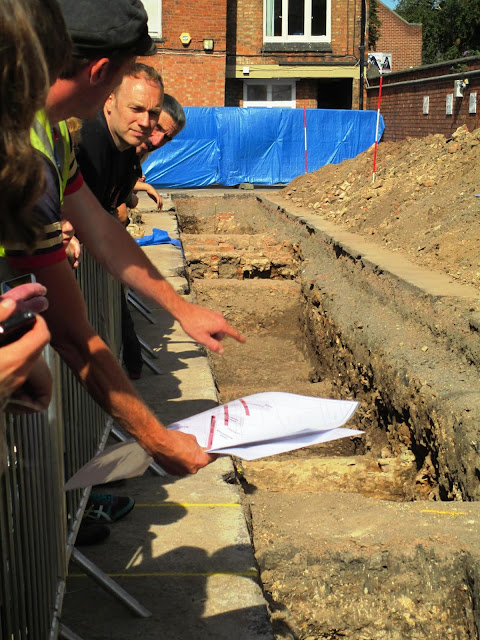Mike Pitts, who I quoted the other day on the Richard III film The Lost King, has written an article on the subject. You can download a pdf of it from the British Archaeology magazine website.
A few quotes for you:
The film portrays the university, and Richard Taylor in particular, as patronising and dismissive, coming on board only when they could see financial or personal career advantages; Langley, aided by the Richard iii Society, puts up all the funds. This is wrong.
The society paid for a desk-based assessment and a ground-penetrating radar survey (against Buckley’s advice – in the event its most significant effect was to scare off a sponsor), and for about half of the initial dig. Most of the other half was paid for by the university, which underwrote the whole project and went on to fund research that proved the identity of the king’s remains, as well as contributing to reburial costs, with sums totalling millions of pounds. In all Langley and the Richard iii Society supplied around £20,000.
He writes of Richard Taylor, the University of Leicester's director of corporate affairs at the time of the dig:
He notes that the film, by omitting the university’s research, appears to create a sexist opposition between Philippa Langley and male archaeologists and administrators; of Jo Appleby (human remains), Lin Foxhall (head of archaeology & history), Sarah Hainsworth (pioneering micro-ct scanning), Turi King (ancient dna) and Deirdre O’Sullivan (friaries), only Appleby makes the cut, in a brief appearance standing in the trench. Taylor is taking legal advice
And on the film's implicit conspiracy theory Pitts says:
Though it is individuals who are falsely portrayed (even as actors seem to have been chosen partly on account of physical resemblances), the film implies a wider target. Langley represents all of us oppressed by bureaucracy, prejudice and corporate thinking – The Lost King does a good job of this.
The baddies are not just Leicester’s academics and archaeologists, “a bunch of guys taking credit for what [she] did” as Frostrup put it, but the nation’s. Universities are shown as places where you are forbidden to challenge convention, and where devious academics scheme to shut down competition.
In reality, the Richard III dig, a triumph of openmindedness, dedication to an unlikely cause and cooperation across a wide range of university departments, was the opposite.Anyway, download and read the article for yourself.

No comments:
Post a Comment